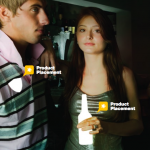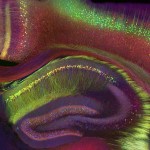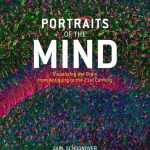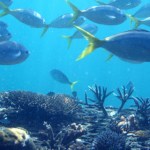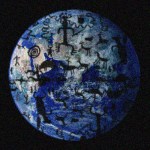biology
For health organizations, federal agencies and nonprofits alike, it's a challenge to get anyone to pay attention long enough to hear your prevention messages, much less to actually change their behavior as a result. It's even harder with kids. It's not that they don't care about science; quite the contrary, they love it - especially if it's gross. It's more that they don't want to hear an authority figure talking down to them about the parade of terribles that will befall them if they binge drink, have unprotected sex, etc. Be honest: can you think back to your high school health classes…
On Sunday 14 November at 1400 hrs I'm giving a talk on the aristocracy of the 1st millennium AD at the Town Museum of Norrköping, Holmbrogränd.
On Monday 15 November I'm speaking at a seminar in Gothenburg about social media and scientific and political communication. My talk will be some time between 1300 and 1600 hrs, and treat of how I as a professional research scholar take part in the writing of Wikipedia. The venue is most likely at the IT University, Forskningsgången 6 on Lindholmen.
On Thursday 9 December some time after lunch I'm speaking at a seminar in Stockholm about the…
This one-liner from the 1967 classic "The Graduate" might have made Benjamin Braddock (Dustin Hoffman) cringe:
But 43 years later, it's obvious that Mr. McQuire was onto something. Today, it's hard to imagine life without plastic, from brushing your teeth in the morning to pouring yourself a glass of milk. We produce so much of the stuff, though, that we now face major environmental problems. Conventional plastic is made from crude oil, is not often recycled, and, when put in landfills, can release toxins that enter soil, water, and the food chain.
Researchers at Brookhaven and Dow…
Hippocampus: Broad Overview
Tamily Weissman, Jeff Lichtman, and Joshua Sanes, 2005
from Portraits of the Mind: Visualizing the Brain from Antiquity to the 21st Century by Carl Schoonover
The first time I created a transgenic neuron, it was in a worm, C. elegans -- a tiny, transparent cousin of the earthworm. I injected DNA into the embryonic worm, let it grow up, and voila: there was one eerie green blotch like a little Pac-Man ghost, its long green axon a lime racing stripe running along the worm's transparent body. The worm wiggled, but I was the one hooked: science is beautiful.
You…
One of the great things about having declared Vaccine Awareness Week is that it gives me a convenient excuse to revisit topics and blog posts that I had meant to address but that somehow didn't make the cut the first time around. This is the sort of thing that happens fairly frequently in blogging, where there is far too much woo and idiocy for one blogger to have even a hope of ever addressing it all.
And that's just the anti-vaccine movement.
In any case, if there's one thing about the anti-vaccine movement that I've noticed, it's that its members have a very warped view of both science and…
Just in: the 2010 Imagine Science Films Festival's Nature Scientific Merit award, given to "a short film that exemplifies science in narrative filmmaking in a compelling, credible and inspiring manner," is An Eyeful of Sound, a short film about audio-visual synaesthesia by Samantha Moore.
Here's the trailer:

An Eyeful of Sound - trailer from Samantha Moore on Vimeo.
It's a little hard from that clip to get a sense of what the film is like. But it's great that an organization is finally calling attention to science-themed short films. Bravo, ISFF.
Related: The Eyeful of Sound…
"I don't think we came from monkeys. I think that's ridiculous. I haven't seen a half-monkey, half-person yet." -Glenn Beck
I don't often write about biology here, but as many of you know, I often write about the history of the Universe, and that includes the Sun, the planets of the Solar System, and the Earth in particular.
Just this week, I came across the last in a series of one of the greatest nature shows I've ever seen: David Attenborough's Life series. In particular, this was Life in Cold Blood, which focused on reptiles and amphibians.
One of the complaints I regularly get over…
A couple of days ago, the New York Times reported on an undergraduate class at Harvard that teaches the science of cooking. It's called "Science & Cooking: From Haute Cuisine to Soft Matter Science," and it's popular: if you're a Harvard undergrad, you have about a 43% chance of winning a seat at the lab bench (still, as one of the instructors points out, better odds than most people have of getting reservations at one of the participating guest chefs' exclusive restaurants).
The class also seems to be changing the way some students think about science:
For Mr. Jean-Baptiste, a junior…
And now for a completely different type of glass art: this time from sculptor Luke Jerram. His deceptively beautiful glass malaria parasite (see video below) will be auctioned off to benefit Malaria No More.
Via Medical Museion. The "malaria parasite" is also known as Plasmodium falciparum. Read more about Jerram's sculpture here - no, I don't know when the auction will be, but I imagine he'll update his website with the news.
The Lorne Trottier Symposium is over, and it went quite well. Amazingly, even though I had to follow Michael Shermer's talk, people told me I didn't suck, which made me feel better. Oh, there was this issue of a guy who wanted to tout Royal Rife and his machine. He wouldn't have irritated me so much for doing that. What did irritate me was that he went on and on and on and wouldn't yield the microphone, to the point where I tried to interrupt him to ask him if he had a question and then ended up being perhaps too dismissive of his question. On the other hand, even Michael Shermer told him, "…
Wilkins reports Leigh Van Valen, paleontologist and evolution polymath (theorist, philosopher, mathematician, proponent of the Ecological Species Concept, and coiner of the Red Queen Hypothesis) has died.
He was 75, and will live on through his many students and his astonishingly broad body of research, which touched on everything from the evolution of whales to whether HeLa cells could be considered a new species.
In his fine new book Vanished Ocean, geologist Dorrik Stow uses the biography of one of our planet's vanished oceans to teach the reader a wide range of veeery long-term perspectives on geological history. The ocean that geologists call the Tethys came into being when the Pangaea supercontinent coalesced in the Late Permian, 260 million years ago. Its last vestige finally disappeared when one of the Mediterranean sea's forerunners dried up 6.5 million years ago.
Along the way, Stow explains plate tectonics, the birth and death of seas, deep-sea sedimentation (his research speciality) and a…
This, this and this all came close, but in the end, it took a book: a yummy new neuroscience, history of science, beauty of science, wow-brains-are-beautiful book.
The other day I heard about something that I just HAD to blog, hiatus/retirement be damned! Portraits of the Mind: Visualizing the Brain from Antiquity to the 21st Century, a new book by neurobiology PhD candidate Carl Schoonover, is coming out in a few weeks, and I'm lucky enough to have a preview copy sitting here before me.
This book encapsulates my original vision for BioE - a narrative that brings science history together…
Yesterday's walk in the woods near Drevinge garnered us the following:
Shaggy ink cap, Fjällig bläcksvamp, Coprinus comatus
Terracotta hedgehog, Rödgul taggsvamp, Hydnum rufescens
Shingled hedgehog, Fjällig taggsvamp, Sarcodon imbricatus
Common puffball, Vårtig röksvamp, Lycoperdon perlatum
Velvet bolete, Sandsopp, Suillus variegatus
Copper brittlegill, Tegelkremla, Russula decolorans
Birch bolete, Björksopp, Leccinum scabrum
I've never picked the ink caps before as I knew that the Common ink cap is poisonous at least in combination with alcohol. But now I know better. The shaggies…
Every so often, real life intrudes on blogging, preventing the creation of fresh Insolence, at least Insolence of the quality that you've come to expect. This is one of those times, thanks to R01 deadlines. So enjoy this bit of Classic Insolence from back in September 2007 that, shockingly, as far as I can tell I've never "rerun" before. Remember, if you've been reading less than three years it's probably new to you, and, even if you have been reading more than three years, it's fun to see how posts like this have aged.
As I usually do on Thursday nights, I was perusing my legendary Folder…
"Goldilocks was hungry. She tasted the porridge from the first bowl.
'This porridge is too hot!' she exclaimed.
So, she tasted the porridge from the second bowl.
'This porridge is too cold,' she said.
So, she tasted the last bowl of porridge.
'Ahhh, this porridge is just right,' she said happily and she ate it all up." -Goldilocks and the Three Bears
Life as we know it on Earth all makes great use of one particular molecule in one particular phase:
Liquid water! Having a liquid phase to water requires an atmosphere with enough pressure (and something with even 1% of Earth's atmosphere will…
Let's define alien.
Definition number one: unfamiliar. By that description alone, a good 99% of life on this planet is alien. Breathing water, living nestled in thermal vents, stalking prey on the veldt, growing out of the Earth and eating sunlight, without eyes, without legs, with extra legs, color-blind, carapaced, marsupial, with exoskeletons, with jelly for brains, microbial, in a test tube, growing from spores. Not to mention the extremophiles, those nutty organisms that thrive in hellish environments like boiling acid, liquid asphalt, radioactive waste, and under extreme pressure.
I'…
That's the full video from my panel at Netroots Nation this summer. Mark Sumner (DailyKos's DevilsTower, and the author most recently of The Evolution of Everything), Greg Dworkin (DailyKos's DemfromCT), and Naomi Oreskes and Erik Conway (co-authors of the excellent and important Merchants of Doubt.), joined me to talk about threats to science in today's society, and what scientists have done to fight back.
Don't miss my discussion of Leviathan melvillei and the Fail Whale.
A week ago, the Swedish Research Council's expert panel for the investigation of suspected science fraud delivered its findings regarding Suchitra Holgersson, professor of transplantation biology in the Sahlgrenska Academy at the University of Gothenburg. The panel finds Holgersson, who joined the Academy two years ago, guilty of severe science fraud in several cases where she has fabricated data (published i.a. in the Blood journal) and distorted results, and also in that she has forged documents in attempts to mislead the expert panel itself during the investigation.
Professor Holgersson's…
Here and elsewhere in the blogosphere, over the last several years, what started out as a more general interest in skepticism and science with a natural focus on medicine and a side interest in combatting Holocaust denial became more focused on promoting science-based medicine. As the saying goes, "Science, it works, bitches," and I make no apologies for promoting science-based medicine as the best medicine and applying skepticism and science to claims of purveyors of unscientific so-called "alternative" medicine advocates and anti-vaccine loons. However, I am not blind to the shortcomings of…
